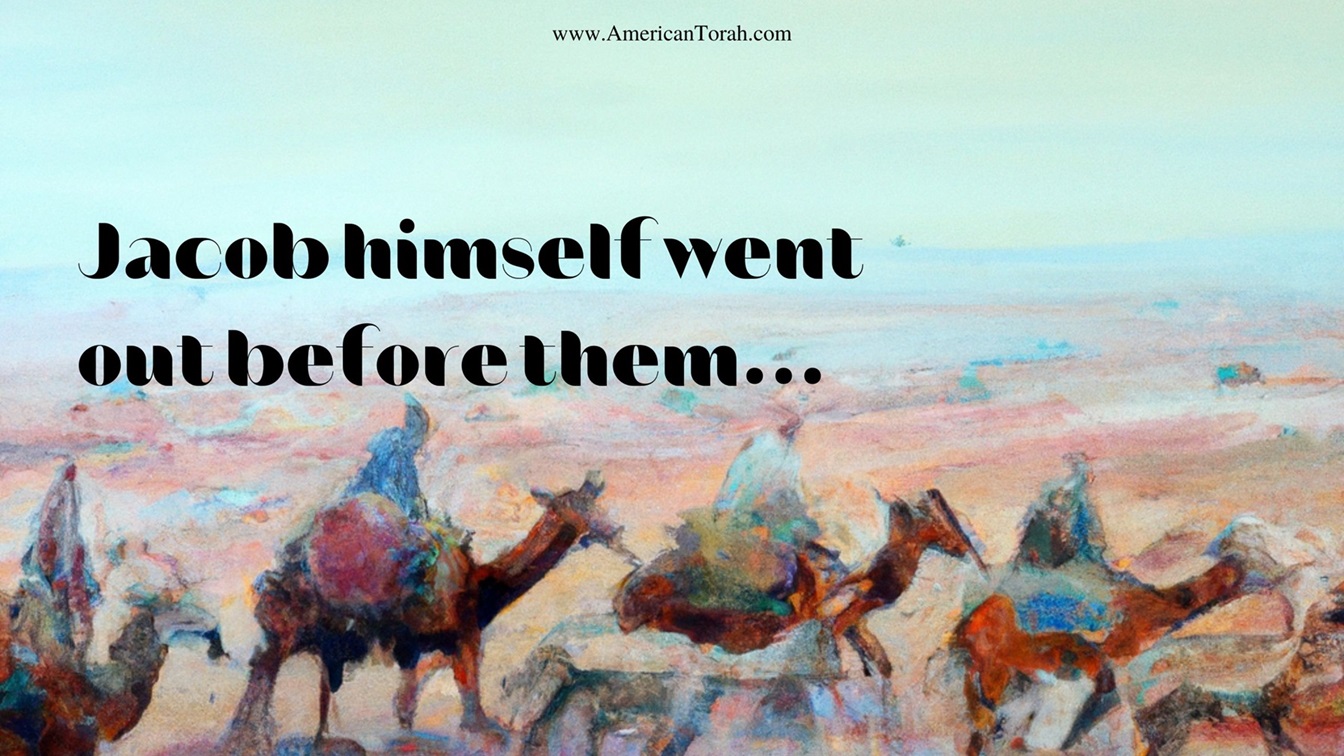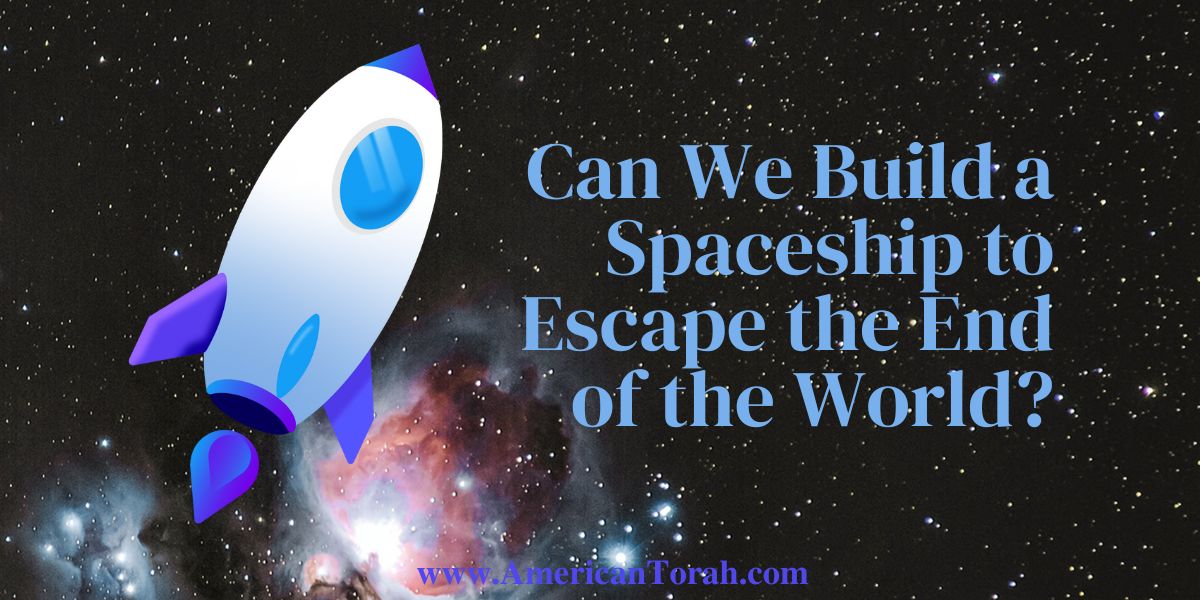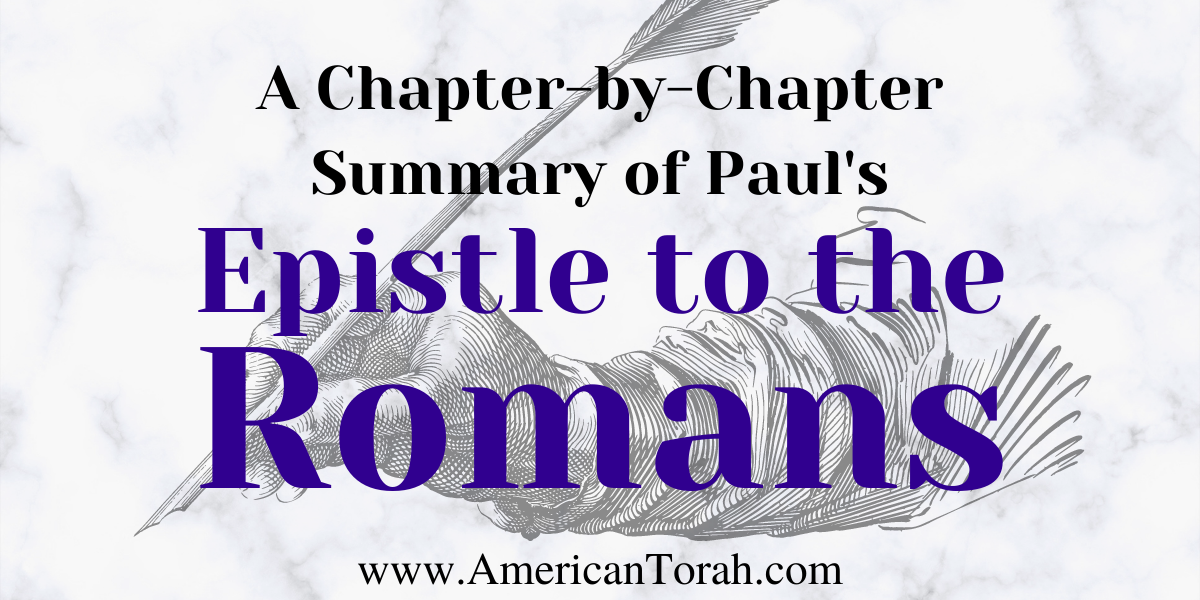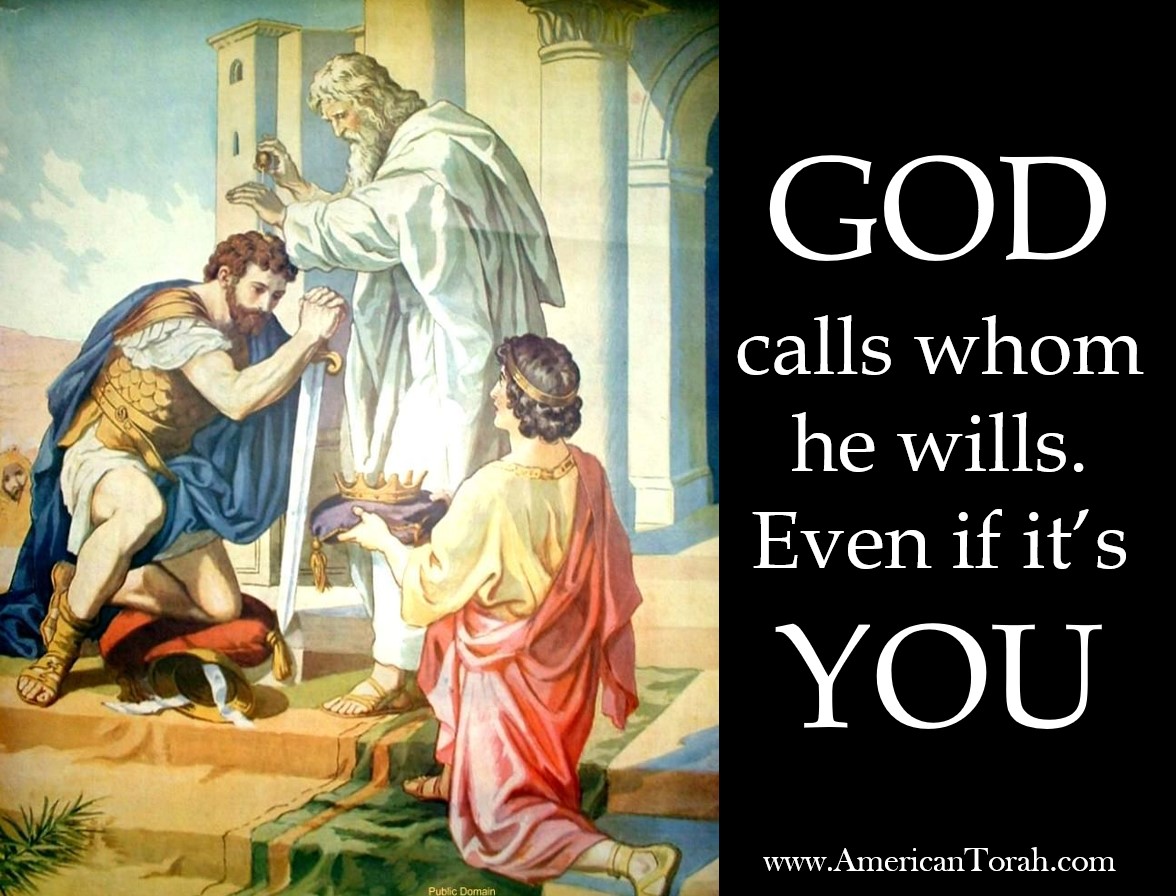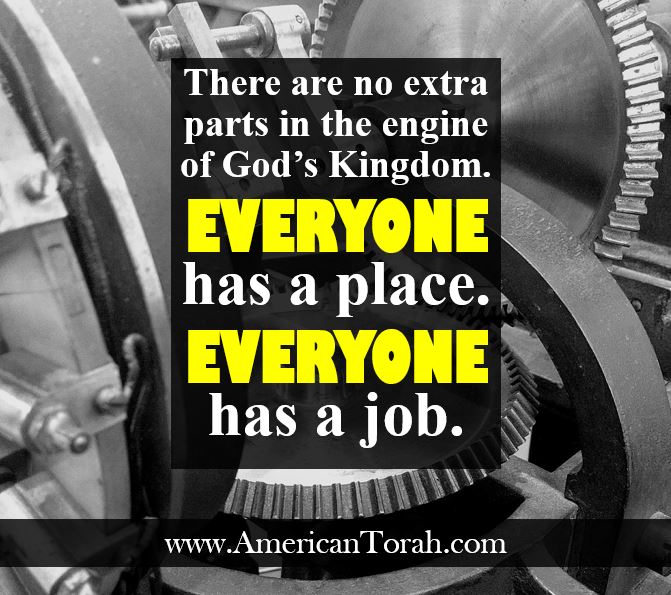Then Jacob was greatly afraid and distressed. He divided the people who were with him, and the flocks and herds and camels, into two camps, thinking, “If Esau comes to the one camp and attacks it, then the camp that is left will escape.”
Genesis 32:7-8 ESV
Jacob divided his camp into two companies. In one company went all of his livestock, and in the other went his family and other possessions. (We can know the general scheme of division because verses 22 and 23 say that all four women and eleven sons were still with him after he had sent off his livestock.) Jacob obviously did not consider his wives and children to be mere property. He was willing to sacrifice all his wealth before sacrificing even one of the concubines. Later, he would also divide his family into separate parties.
There are points in this story where it sounds like Jacob sent his family ahead to face the danger of Esau while he stayed behind to see what would happen, but a careful reading shows that this isn’t what happened at all. Here is a breakdown of the actual sequence of events:
- 32:3-5 – Jacob sent messengers to Esau to announce his return.
- 32:6 – Messengers returned to say that Esau was coming with 400 men.
- 32:7 – Jacob divided people and herds into two groups, but they didn’t go anywhere yet. His entire retinue was still in one location.
- 32:8-12 – Jacob prayed for deliverance from Esau and declared his trust in God’s promise.
- 32:13-18 – Jacob sent servants with goats, sheep, camels, cattle, and donkeys as 5 separate gifts to Esau.
- 32:19-20 – Jacob sent additional presents of herds to Esau.
- 32:21 – Jacob stayed in the camp with his family.
- 32:22-23 – Jacob sent his family and remaining possessions across the Jabbok river.
- 32:24-30 – Jacob wrestled with the angel.
- 32:31-32 – Jacob returned to his family.
- 33:1-2 – Jacob divided his remaining camp into three.
- 33:3 – Jacob went ahead of his family to meet Esau alone.
- 33:4-11 – Esau met Jacob and his family. Discussion of gifts.
- 33:12-15 – Esau offered to merge their camps and Jacob refused.
- 33:16 – Esau returned to Seir.
- 33:17 – Jacob went on to Sukkot.
At first Jacob feared for himself and his family, so he divided his household into two groups, thinking that if Esau attacked one, then the second might have time to escape. But then, as he prayed for God’s protection, he remembered God’s promise to make his offspring as numerous as the sand of the sea and realized there was nothing Esau could do to threaten that future. He changed his plan.
Instead of sending his household in two different directions, Jacob decided to try to make peace with Esau, apparently hoping to cool his brother’s anger before they even met. He formed small herds of goats, sheep, camels, cattle, and donkeys and sent them ahead as gifts, one herd at a time. He instructed the herdsmen accompanying each herd to tell Esau that they belonged to his servant Jacob and were sent as a gift to Lord Esau. He called Esau “Adonai” and used the same word for gift, minkhah, used of the grain offerings given to YHWH in Leviticus 6 and 7. He simultaneously expressed humility and generosity to someone who was legally and justly his inferior and did so in a way that was certain to soften Esau’s heart toward him.
Jacob then followed this with more of the same, with groups of animals–the most widely recognized form of wealth–probably arriving over the course of at least two days. He could have sent all of these animals as a single, tremendous offering, but he understood that many small–but still generous–gifts over time will have a much deeper impact on the recipient than a greater gift given all at once. If a soft answer turns away wrath (Proverbs 15:1), how much more will a dozen soft answers?
In Genesis 32:22, Jacob took his family and the rest of his household across the Jabbok River north of Esau’s territory. While both sides of the river were within the territory that God had ultimately promised to Abraham’s descendants, it was a significant geographic boundary separating them from Esau. Jacob had authority from God, but Esau still held most of the actual power, as evidenced by the significant force that accompanied him–100 more men than Abraham fielded in his war against Chedorlaomer in Genesis 14.
Verse 23 says that Jacob “sent them across the stream” and is then left alone in verse 24 for his wrestling match with the angel. However, verse 22 shows that he crossed the Jabbok with his family, probably going back and forth multiple times to lead them across in smaller groups. When his entire household had successfully crossed the river, it appears that Jacob went back by himself, possibly to make one last check for stragglers, just as we might check under all the pillows and in all the drawers of a hotel room before finally checking out.
Even then, the text doesn’t say which side of the river Jacob was on during his encounter with the angel. Most people assume that he was on the north bank since he was by himself, and that seems reasonable but is ultimately unknowable. The antiquity of Genesis necessitates guessing at many dates, names, and locations.
My point is that Jacob didn’t send his family ahead into danger. In 33:1, he is back with his family again, so whether he wrestled on the north or the south bank of the Jabbok, they were never far away.
In 33:1-2, when Jacob could see Esau and his men approaching, he divided his camp again, this time into a column of three groups, with those he valued most at the rear. Bilhah and Zilpah with their children were in the first group, Leah and her children in the next, and Rachel and Joseph in the last. Each of these groups probably included herds, beasts of burden, servants, and armed guards. Even after giving away enormous wealth to Esau, Jacob was likely still a very wealthy man.
Good leaders, fathers, and husbands should almost always be first into danger and the last to escape. Verse 3 says plainly that Jacob then went ahead of all these to be the first to meet Esau on the road, bowing seven times along the way. Although we know from Genesis 29:10 that Jacob was a strong man, he didn’t want a fight with Esau, let alone with all of his men. He wisely softened Esau’s heart before they met with generous gifts, shows of humility, and generally treating Esau as an honored lord, all the while putting himself and all his wealth in danger before his wives and children.
Finally, knowing Esau’s fiery character from previous decades spent with him, he seems to have also suspected that Esau’s good will might not last and that his men would not make good company for his family on the road.
In 33:12-15, Esau offered to accompany him on the road, but Jacob found a gracious way to decline: “Let my lord go on ahead of his servant, and I will lead my group slowly, at the pace of the livestock and children, until we reach Seir.” He flattered Esau by acknowledging his ability to travel more quickly, he made himself seem weaker in Esau’s eyes, and he even lied to say that they would join him in Seir, when he had no intention of going there.
Esau responded by offering to leave a group of men behind to guard them on the road, but without their lord present to keep them in check, that might prove even more dangerous than traveling with Esau. Jacob’s response this time was simpler, but even more subtly flattering: “There’s no need. Only let me find favor in your sight.” That last was probably to say that if everyone knew that Jacob was in Esau’s good graces, who would dare try to harm him? So Esau went to Seir and Jacob went to Sukkot.
Jacob, far from being a coward, showed himself to be a generous, determined, and humble leader. He put the well-being of his family ahead of his own, recognizing and avoiding dangers to them, and humiliated himself before the world in order to preserve them. He was far from perfect, but in this episode of his life, Jacob was a model from which all fathers and husbands can learn.


